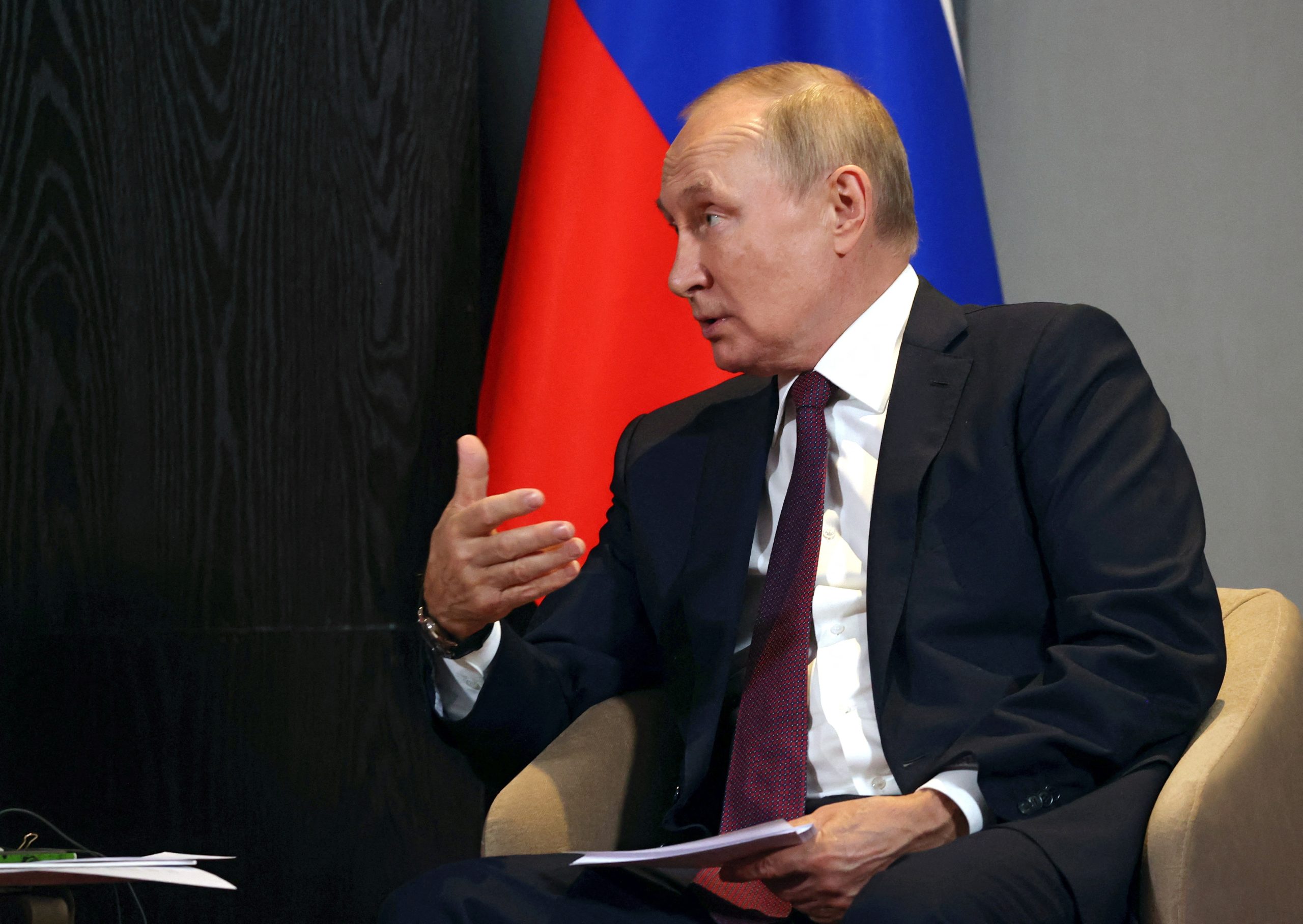
Lauren C. Moye, FISM News
[elfsight_social_share_buttons id=”1″]
President Vladimir Putin hinted on Friday that Russian forces might retaliate against Ukraine’s counteroffensive by more devastating targeting of infrastructure than what has been seen so far during the war.
“The Kyiv authorities announced that they have launched and are conducting an active counter-offensive operation. Well, let’s see how it develops, how it ends up,” said Putin at a press conference after a Shanghai Cooperation Organization summit held in Uzbek, Samarkand.
The words were spoken with a grin, hinting that the Russian leader is unphased by his troop’s recent loss of ground.
He then added, referencing an attack against a supply dam and electricity supplies, “Recently, the Russian armed forces have inflicted a couple of sensitive blows. Let’s assume they’re a warning. If the situation continues to develop like this, then the response will be more serious.”
Putin also refused to reframe his take on the necessity of invading Ukraine, saying that Russia’s “special military operation” goals remain unchanged with a focus on taking full control of the Donbas.
Russia currently controls one of the two Donbas regions, the Luhansk, between their own troops and Russian-backed separatist forces. They only have partial control of the second region, Donetsk.
Altogether, Russia currently occupies around one-fifth of Ukraine, including the southern provinces of Zaporizhzhia and Kherson along with the 2014 annexation of Crimea.
The Russian invasion of Ukraine which began on Feb. 24 is now on its 206th day.
Ukraine has made strong gains against the troops in the past two weeks after interrupting a main Russian supply line. However, even Ukrainian President Volodymyr Zelensky feels that the recent victories are simply a new chapter in the war rather than signaling the beginning of the end.
“It’s early to talk about an end to this war,” he told Reuters in an exclusive interview.
However, he feels that retaking territory was “an important step that influenced” continued strong support from Western allies. Zelensky relies on foreign weapons supplies to keep his soldiers well-equipped.
This makes for a critical difference between Kyiv and Moscow, which struggles to resupply and build fresh artillery and military weapons under the burden of imposed sanctions.
In addition to the threat of greater infrastructure damage, Ukrainians must also cope with a weighty civilian body count. While they have previously accused Russia of committing war crimes, new mass graves have been discovered in the retaken territory.
“As of today, there are 450 dead people, buried. But there are others, separate burials of many people. Tortured people. Entire families in certain territories,” Zelensky said on Friday.
The majority of these bodies were discovered outside Izium, where 200 crudely made crosses marked bodies buried in a forest. Other mass graves are scattered throughout the former Russian-occupied city.
Officials have been working on exhuming the bodies. Izium will be the biggest mass burial found in Europe since the Balkan Wars in the 1990s if the number of bodies proves to match early estimations.
Kharkiv Governor Oleh Synehubov, who visited the site, said there is evidence of violent deaths, including corpses with hands bound behind their backs. He vowed that each one would be investigated “properly and legally evaluated” for war crimes.
“One can only imagine the hell that people in other Russia-occupied territories still go through. We urgently need more weapons to liberate them and save their lives!” stated Ukraine’s Foreign Minister Dmytro Kuleba on Twitter.
Russia has denied targeting civilians or knowledge of the graves. Instead, the Kremlin has accused Ukraine of staging the scene to gain global sympathy.
However, as U.S. Army General Mark Milley said on Friday, “War crimes cannot be hidden, especially things like mass graves.” The truth will come out eventually.
